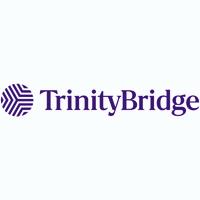Top tips to communicate pensions to staff

The pension reforms have reinforced the need for financial education in the workplace as employees look to make sense of, and take advantage of, the new flexibilities.
Employers are in a prime position to support staff in this area, but it doesn’t have to come hand in hand with huge expense or a strain on resources. These are five simple, practical steps that businesses can take to ensure they are supporting staff in the best way:
- Develop a communications strategy: Simply making staff aware of the changes, and of the further support available to help them make informed decisions about what to do with their retirement savings, is a start. This will encourage employees who may have been having doubts to come forward and ask the right questions. Using this campaign to reinforce the fact they do need to seek further guidance and advice on the options available will help start the education process.
- Provide specific, dedicated support: Build on this communication by introducing either face-to-face or web based education seminars with access to online platforms and modellers, and, for those that need it, one-to-one advice. This will help staff to not only understand their options in greater detail, but to see the impact and learn how to make the best decisions for their own financial circumstances. These seminars should cover more than just the pension reforms but review broader aspects such as understanding their state pension provision and tax implications.
- Don’t forget younger staff: Planning for retirement doesn’t start at retirement, and the pension reforms give employers an opportunity to review pension engagement throughout the entire workforce. The earlier people start saving into a pension the better and the profile that the pension reforms have had in the media means more people of all ages are considering their pension. The earlier engagement with younger staff begins, the more will help support the morale and wellbeing of the whole workforce, not just those approaching retirement.
- Review default/ lifestyle funds: Most default/ lifestyle funds may no longer provide suitable investment strategies for employees who don’t intend on using their pension to fully fund an annuity at retirement. In the vast majority of DC schemes, significant numbers of employees are in the default fund. So employers need to review these investment strategies to make them relevant to the post pension reform era. Employees in default funds in the 10 years ahead of retirement will also need to understand the impact of the reforms. This includes understanding the fund investment choices and making an informed decision on whether their pension is invested in the most suitable place to deliver the best retirement income.
- Pension Wise – If employers intend to refer staff to Pension Wise, the Government’s free service, then they should make it clear what they can expect and that this service offers guidance and that it should therefore sit alongside financial advice rather than competing with it.
This article was supplied by Jeanette Makings, head of financial education, Close Brothers.
Supplied by REBA Associate Member, TrinityBridge Limited, formerly Close Brothers Asset Management
TrinityBridge has been delivering workplace financial wellbeing programmes to some of the UK’s best-known employers for over 55 years.







